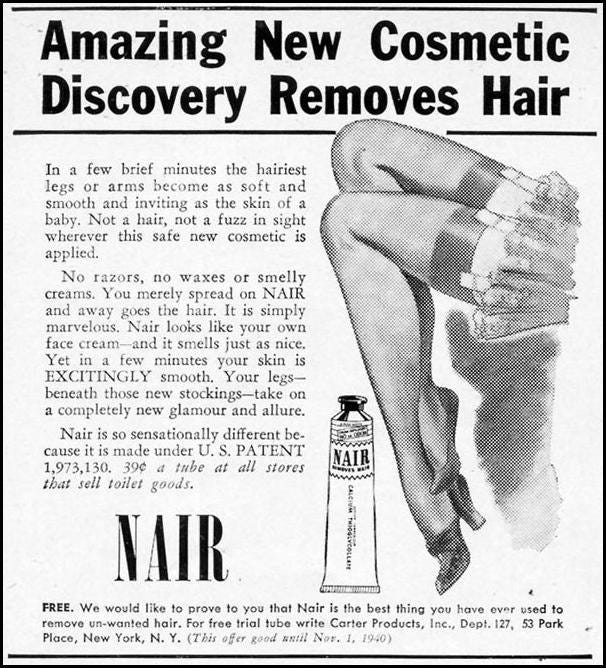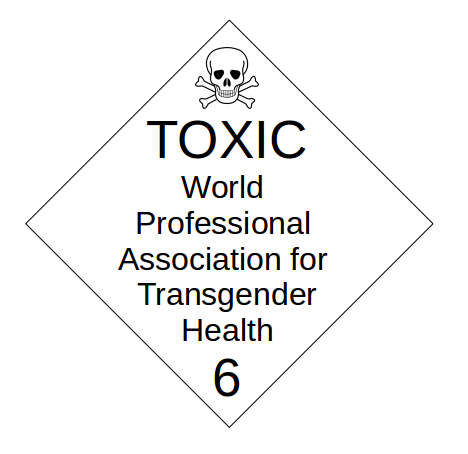Learning to Love My Hairy Legs
Am I a bad feminist if I don’t?

Two years ago, I stopped shaving my legs. At the time I was living in a vegan feminist cooperative— which is pretty much exactly what you would imagine.
None of the other women there shaved their body hair. I had always hated doing it, but being around other women who owned their natural bodies with beauty and bravery made me inspired to finally ditch the razor.
I generally love not shaving. I love not having to drag the blade across my legs and arms every morning. I love that my sensitive skin doesn’t break out into little red bumps anymore. I love that I save money not buying products I don't really need. I love that I gained back hours of time each week — hours I can use for writing or creating projects I am passionate about.
But despite everything I love about not shaving, I do not love my hairy legs.
I worry about what my partner thinks.
I worry about what my friends and family think.
I worry about what strangers on the street and in the grocery store think.
Two years later, I still have not learned to love my hairy legs — and I worry that makes me a bad feminist.
Society has been telling me since I was born that beautiful women have hairless, smooth, long, skinny legs. I was never really particularly long or skinny, so hairless and smooth were all I could improve upon. To say that for women being beautiful is important would be the understatement of the year. We all know the pressure.
Of course, these beauty standards are completely arbitrary and were constructed almost entirely for corporate profit and male benefit. Despite claims of “hygiene,” there’s nothing more hygienic or clean about removing body hair.

Removing hair from underarms didn’t become normal for women until about 1915 when sleeveless dresses started to come into fashion. Meanwhile, women’s leg hair was usually behind long skirts or stockings until the second World War, when nylon became rationed and women were forced to find another way to hide their “objectionable hair.”
Razor and depilatory companies like Gillette and Nair were happy to expand their market, and pushed out ads calling women’s body hair “embarrassing.” One ad even went so far as to claim women with “superfluous hair” would be “unloved.”
One ad in McCall’s magazine in the 1940s read:
“Let’s Look at Your Legs — Everyone Else Does.”
After nearly 100 years of anti-body hair propaganda, it’s no wonder women find it so hard to love their natural bodies, hair and all.
Despite the obviously capitalistic origins of the pressure to buy products to remove their body hair, it’s clear that market forces were not the only factor at play. One major demographic was excluded from the push to remove leg and underarm hair: men.
Why weren’t men ever pressured to be hairless?
Female hairlessness is part of a bigger problem for women than just beauty standards and unfair industries: a culture of pedophilia.
Pedophilia culture is the driving factor behind most beauty standards for women. Men want women who are young, hairless, small, and tight. No adult woman is truly like this — what men want is a girl.
In a 2015 Feminist Current article, Alicen Grey outlines her theory of pedophilia culture:
“Pedophilia may seem taboo and despised by the masses, but an honest appraisal of our culture at large reveals otherwise. I propose that pedophilia is actually rewarded and celebrated, and that our entire culture and understanding of sexuality is constructed around what seem to be pedophilic desires.”
This culture of pedophilia plays out in many ways. The most obvious manifestation of a culture of pedophilia is in the popularity of teen porn, which has topped Pornhub searches for six years in a row.
Women are increasingly undergoing labiaplasty and hymenoplasty in an attempt to make their genitals more closely resemble girls’ — a move directly influenced by the rise of porn culture.
Stories like Lolita, and their modern retellings such as Pretty Little Liars, refuse to die out and continue to titillate audiences with tales of young girls and their “romances” with older men, often their teachers.
Even the words we use to sexualize women infantilize them. Grey writes:
“In pedophile culture, we casually refer to grown women as “girls.” We have a word specifically for attractive female teenagers: jailbait. Women are sexualized as chicks, kittens, and babes.”
The removal of body hair on women, which develops during puberty, is just one more aspect of a culture of pedophilia, where men, in particular, are drawn to pre-pubescent girls — or women imitating them, which provides a more socially acceptable outlet for these desires.
Once we realize that leg and arm shaving is meant to imitate the bodies of young girls, men’s insistence on women’s hairlessness becomes less about personal preference and much more insidious.
Knowing the reasons behind the societal pressure to have smooth, baby-like skin for women may make it easier to consciously choose to forgo the razor, but it does not necessarily make you love your hairy legs. Despite mainstream movements for body positivity, this doesn’t seem to have extended to body hair. The desire for “perfect” legs seems to be deeply ingrained in me.
When I see other women with smooth, hairless, child-like legs I feel a mix of shame, jealousy, anger, and disgust.
I feel ashamed at my own lack of beauty in comparison to her, even though I know this shouldn’t matter to me. Aren’t I a feminist?
I feel jealous that she looks beautiful, even if it comes with the pain I know is necessary to achieve it and which I purposefully choose to reject.
Then I feel angry that I feel ashamed and jealous because of how another woman lives her life — I hate that patriarchy turns us against each other. I get angry at myself for still caring about what people think. Shouldn’t I be over this by now?
And then I feel disgusted that this adult woman in front of me has been forced to modify her body to resemble a child’s in order to be accepted by society.
Every time I wear shorts, a dress, or a swimsuit I have to confront my own insecurity around not shaving. I wish I loved my hairy legs. I wish living in my natural, unaltered, adult body made me feel empowered. Isn’t that what feminism is supposed to do — empower us?
Other parts of my journey through radical feminism, like ditching makeup, have made me feel stronger, more beautiful, and more confident.
Why am I so hung up on legs?
Until I train my brain to overcome the pressure to look “beautiful” as defined by this capitalist patriarchy, I suppose I’ll have to just accept that I don’t love my hairy legs yet. Maybe that’s okay for now. Maybe it’s okay to work up to loving parts of yourself against all odds. Maybe I’m not a bad feminist because I still struggle with this.
Sometimes making a feminist decision isn’t about what makes you feel good.
Sometimes a feminist action is about making it easier for the women and girls who come after us, even if that means we struggle in the meantime.
Sometimes, when I am out in public with my hairy legs, I see a child look at me with confusion. Maybe she has never seen a woman with hairy legs before. Maybe she never knew women even have hair on their legs. Maybe something about this moment helps make her decision a little bit easier down the road.
I might not love my hairy legs, but I do love sticking it to the patriarchy and helping other women. If my hairy legs allow me to do that — maybe there is something to love here, after all.
Originally published in Fearless She Wrote, CC-BY-SA, M. K. Fain
The generous support of our readers allows 4W to pay our all-female staff and over 50 writers across the globe for original articles and reporting you can’t find anywhere else. Like our work? Become a monthly donor!
Enter your email below to sign in or become a 4W member and join the conversation.
(Already did this? Try refreshing the page!)




Comments